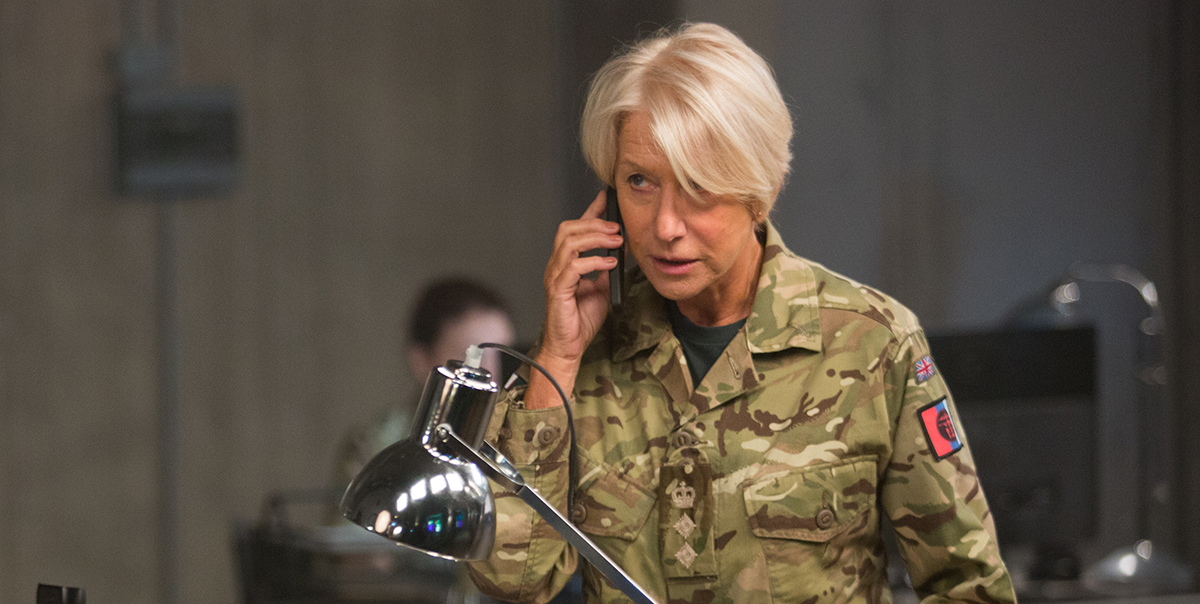Eye in the Sky (2015)
When Stanley Kubrick's Dr. Strangelove: Or How I Learned to Stop a Worrying and Love the Bomb was released in 1964, it had the unusual echo of another film based on a similar source. Fail-Safe, directed by Sidney Lumet, imagined the same idea of a nuclear explosion being unpreventable by the people supposed to be in charge of it. Strangelove is hilarious but chilling satire; Fail-Safe is just chilling. The central notion, that ethics can't be trusted to machines, lingers today (George Clooney produced a live television version of Fail-Safe as recently as 2000). One current version of the dilemma is brilliantly portrayed in Eye in the Sky. Cutting between four main locations (a British government committee room, a military control center in the English countryside, a Nevada drone piloting bunker, and the Kenyan house from where a suicide bomb attack may be launched), it's like a relentless tennis match in which the criss-crossing ball is a matter of life and death.
Who decides who can be killed? If blowing up the house will prevent an attack that might kill 80 people, how much does it matter that a little girl selling bread nearby will probably die, too? What is legal? Does "legal" mean "right?" Such questions have rarely been handled with such compelling dexterity in a movie.
Eye in the Sky deserves comparison with Dr. Strangelove and Fail-Safe because it doesn't seek easy answers, only difficult questions, and its seamless movement between locations fully immerses the audience inside the debate. It transcends those earlier films because of the way it treats the characters who might be seen as "other." The Kenyan agent played by Barkhad Abdi is the most heroic figure here, and the little girl is not played for sentiment, but to confront the (mostly Western) audience with questions of complicity in the oppression of people whose lives already began at a disadvantage. As for the white saviors who don't know how to save, along with subtle turns from Helen Mirren and Alan Rickman (in his last on-screen appearance) as military brass, most striking is the government minister (Jeremy Northam) who wants to do the right thing, but can't be sure what that is. Movie politicians are rarely portrayed as ordinary people (un)lucky enough to have to make decisions most of us might find impossible. But Northam represents the paradox of holding power without the assurance of moral authority. Eye in the Sky examines such power, authority, and morality without catharsis for the audience. There are no easy answers for its characters, so it doesn't provide them to us either.
